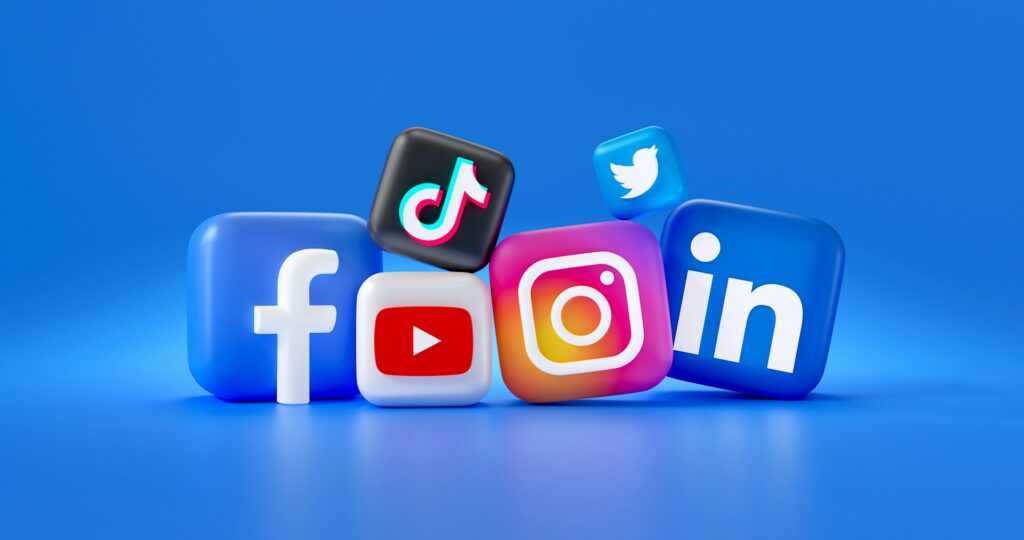In the context of the development of social media what comes next after Instagram and TikTok?

In the context of the development of social media what comes next after Instagram and TikTok?
Since the early days of Facebook and Twitter, social media has come a long way toward its current state. Over the course of the last several years, platforms such as TikTok and Instagram have dominated the digital landscape, influencing society, driving trends, and even having an effect on how companies function via their operations. The next age of social media is already on the horizon, but it is already evolving as a result of changes in user behavior and advancements in technology.
When the year 2025 arrives, consumers expect their internet experiences to be more individualized, immersive, and genuine. Although TikTok and Instagram may still be popular, the game is shifting in a different direction as a result of the transition toward new formats, technologies, and decentralized platforms. What is the next step, then? Investigate the potential of social media in the future.
1. From static feeds to experiences that are completely immersive
When it first emerged, social media was a means of communicating ideas, photographs, and updates. Over the course of time, it evolved into video-first platforms such as TikTok, which are characterized by content that is brief and easily digestible. The emphasis is now turning toward digital environments that are driven by augmented reality (AR) and virtual reality (VR), which are used to create immersive experiences.
Over the next several years, using social media will seem less like scrolling through a feed and more like entering a world that is animated in three dimensions. Try to picture yourself going to a virtual concert with your pals, going shopping in an augmented reality mall that is interactive, or having holographic video conversations right from your phone.
2. The Rapid Growth of Social Platforms That Are Decentralized
The fact that firms own your data, manage your reach, and monetise your work is a significant obstacle presented by the platforms that are available today. Web3-powered decentralized systems, in which users have complete control of their content, profiles, and data, are becoming more likely to be the social media platforms of today and tomorrow.
Due to the fact that these new platforms are founded on blockchain technology, they enable content producers to profit directly via non-fungible tokens (NFTs), tokens, or peer-to-peer payments, without having to depend on algorithms that are driven by advertisements. This strategy not only gives people more control, but it also encourages transparency and digital autonomy throughout the process.
3. Personalization Powered by Artificial Intelligence
The foundation of today’s social media platforms is increasingly being built on artificial intelligence. The algorithm that TikTok uses is already widely regarded as one of the most effective in terms of customization; but, in the future, other platforms will take this to an even higher degree. Artificial intelligence will provide information, advertisements, and suggestions based on your specific interests, therefore curating experiences that are highly individualized.
Imagine if your preferred social media platform had an artificial intelligence assistant that not only makes suggestions for material but also generates posts, edits videos, and even writes captions that are styled according to your preferences. The development of content will become easier thanks to AI, which will also increase user engagement.
4. Authenticity will triumph over perfection in the end.
Users are sick of stuff that has been overly manipulated and polished. There is an increasing desire for postings that are genuine, unfiltered, and relevant. BeReal, for instance, shown how unvarnished moments from everyday life might potentially garner appeal. Genuine conversations, real-time updates, and unplanned narratives will be prioritized above curated feeds in the future of social media platforms.
Instead of focusing only on the number of likes and followers, there is a possibility that platforms may begin to encourage honesty and community involvement. In the future, social media will become more focused on having meaningful discussions than on having ideal visual properties.
5. The Metaverse’s Relationship to Social Media
In the field of social media, it is anticipated that the metaverse will play a significant role in the future. As an alternative to just like or commenting on a post, users will engage in activities such as hanging out with avatars, participating in virtual places, and attending digital events.
The actual breakthrough will occur when metaverse-based social platforms become accessible, mobile-friendly, and extensively embraced. Platforms such as Meta (previously Facebook) are currently experimenting with this, but the true breakthrough will come when these platforms become widely used.
6. Increasingly Popular Content That Is Based on Voice and Audio
Voice-based content is here to stay, as seen by the widespread use of podcasts and mobile applications like as Clubhouse. In the future, social platforms may seamlessly combine video, text, and audio, providing users with more opportunities to engage with one another. Voice cloning powered by artificial intelligence and translation in real time will make talks across the world simpler and more interesting.
7. The Social Commerce Industry Will Take Over
The power of social media as a purchasing tool has grown significantly. A few of early examples were the Shop function on Instagram and the live shopping events on TikTok. By including augmented reality try-ons, artificial intelligence-powered shopping assistants, and cryptocurrency-based payment methods, the subsequent phase will transform social platforms into fully-fledged digital markets.
8. Mental Health and the Wellbeing of Digital Culture
Conversations on mental health and maintaining a healthy balance in digital life are growing in tandem with the proliferation of social media. Artificial intelligence-driven addiction, cyberbullying, and false news are some of the problems that will need to be addressed by future platforms. Anticipate an increase in the use of artificial intelligence-driven moderation, content filters that can be customized, and tools that encourage good use patterns.
9. Micro-communities and private networks.
The overwhelming nature of large platforms with millions of users might be experienced. Micro-communities, specialty groups, and networks that are exclusively accessible by invitation will be the focal points of the future of social media. Conversations that are more meaningful, material that is more targeted, and connections that are more intimate are all possible in these private areas.
10. What Will Follow the Success of Instagram and TikTok?
As TikTok and Instagram continue to develop, it is probable that the next generation of platforms will be developed on Web3, augmented reality and virtual reality, and artificial intelligence. The concept of ownership, immersive experiences, and authenticity will be prioritized above vanity metrics and constant scrolling by these individuals.
Imagine a platform in which your material is saved on the blockchain, you are the only owner of your digital identity, and artificial intelligence technologies assist you in producing content that has a real sense of being one of a kind. This is the direction that social media is heading—in the direction of a digital world that is more customized, creator-focused, and participatory.
The development of social media demonstrates that the only thing that is consistent is change. In the beginning, it was only a place to post status updates, but today it has evolved into a central location for commerce, communication, creativity, and entertainment. Artificial intelligence, augmented reality, and the metaverse will make the next chapter even more interesting, and it may even be more human than it has ever been before.




